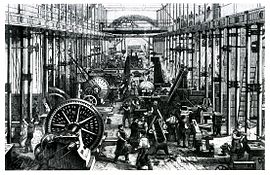 By Robert Washburn
By Robert Washburn
Labour unrest has arrived on the doorstep of West Northumberland.
There are 160 employees locked out at Cobourg’s Horizon Plastics after the two sides were unable to reach an agreement following a marathon negotiating session last week.
Then, there are office dispatchers and mechanics at First Student Transportation in Bowmanville who are scheduled to strike starting Tuesday, affecting thousands of students in 46 schools across the public and separate school boards.
For the countless parents of children who take buses, this leaves a great deal of uncertainty. While there are promises the drivers will not walk off the job in solidarity, there are obvious concerns with delays and the reliability of service at the very least.
Often labour disputes, strikes and lockouts are portrayed for the public in very stark terms. Unions are pitted against companies and one side or both sides are represented as greedily trying to line their own pockets at the expense of the other side. Meanwhile, the public suffers the inconveniences over the fallout.
What we often forget is there are people involved – on both sides. Some of these are neighbours, friends, and family. They are people we see at the rink, at church, or walking along the street.
For workers it can be as simple as keeping a job or not losing benefits. For managers, it is about being profitable and viable in the face of hard economic times.
Of course, this is oversimplified. The issues are complex and emotional. But there are larger forces at work.
Take for example the bus company. First Student Transportation is contracted to provide service by STSCO, (Student Transportation Services of Central Ontario, which was formed by the Peterborough, Victoria Northumberland, Clarington Catholic District School Board; the Kawartha Pine Ridge District School board and Conseil Scolarire de District Catholique Centre-Sud). It was created when school boards sought to reduce budgets by running a single service rather than separate buses for each board.
While the local service is based in Bomanville, it is part of a massive corporation called FirstGroup plc., a global transportation corporation operating in the United Kingdom and North America with annual revenues of more than $10 billion (half of it in North America). It employs more than 136,000 people serving 2.5 billion passengers per year.
This gigantic company, based in Scotland, not only runs school bus services, but also charter buses, transit systems similar to the TTC, and the Greyhound buses, along with all the vehicle maintenance, transit management and contract services that go with it.
Representing the workers at the bus company is Local 4268 of UniFor, the newly amalgamated super-union (formerly Canadian Auto Workers in this case).
From one perspective, it is an international corporation versus a national mega-union. From this angle, it all seems far from West Northumberland.
In the case of Horizons, it involves a company with a new plant in Mexico potentially taking away jobs from West Northumberland. Again, it is a global concern, not just local.
When major unions and global corporations square off, it is hard to remember people are involved. These individuals are trying to make a life for themselves, pay a mortgage, buy a car, purchase groceries and so forth.
These things also affect the local economy when people are not properly paid or do not have benefits, they struggle to buy things or use services or donate to good causes. When, a company closes those taxes and other contributions to the community are gone.
It is easy to get angry when we think about things in such a broad manner – a corporation versus a union. Stereotypes abound. Strong emotions boil over.
If we can stop for a moment and think about the individuals and the impact on each life and our community, our perspective may change for the better.
First appeared Jan. 15, 2014.